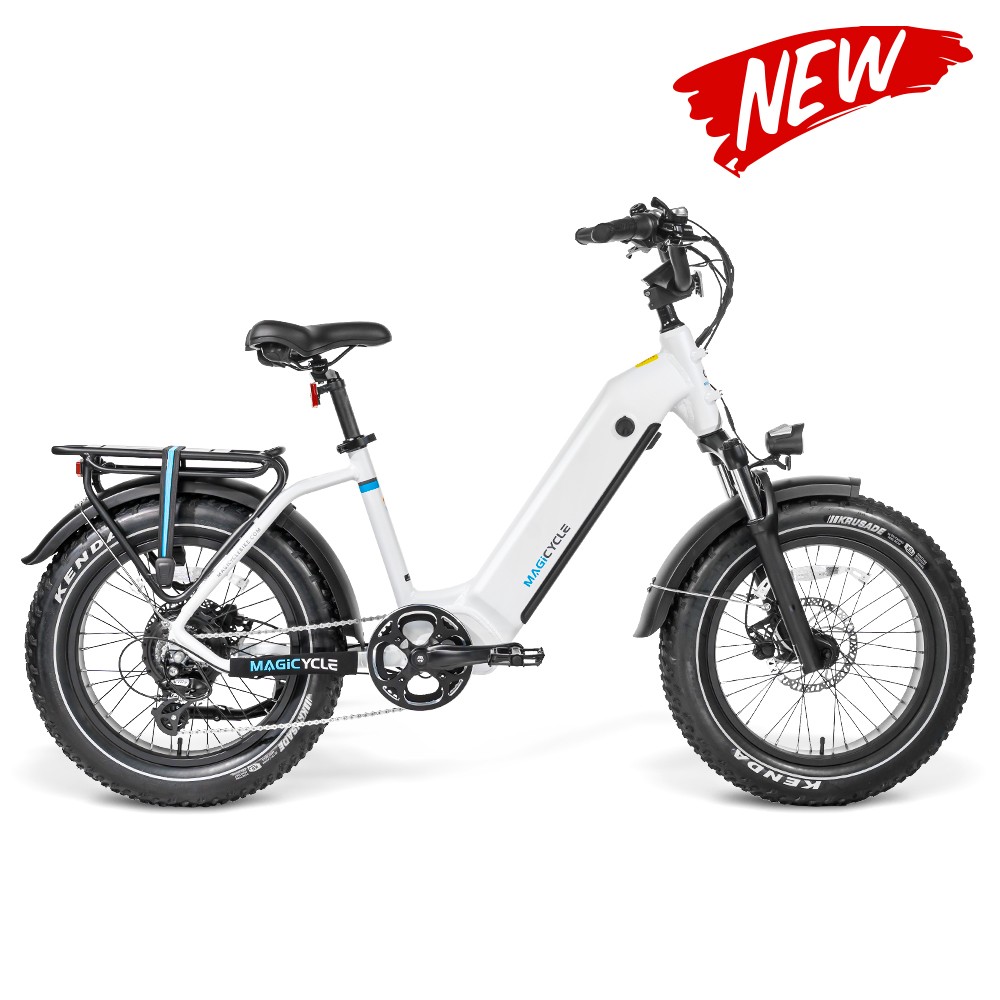E-Bikes on Shaky Ground in National Parks Pending Environmental Review from freeamfva's blog
E-bike owners can still ride on national park trails previously reserved for human-powered travel — for now.To get more news about Fat Tire Electric Bikes, you can visit magicyclebike.com official website.
A District of Columbia federal judge ruled that the National Park Service (NPS) can keep its existing rules in place for e-bike use on trails, but must now conduct its own environmental impact review to analyze the rules’ validity.To get more news about electric bikes for adults, you can visit magicyclebike.com official website.

In his May 24 decision, U.S. District Court Judge Rudolph Contreras directed the NPS to take a “hard look” at the impacts of e-bikes on trails in the 423 parks it manages nationwide. The plaintiffs called the decision a win, but it does not comprehensively deliver on their expectations.In 2019, P. Daniel Smith, NPS acting director at the time, issued a directive that ordered every park to treat e-bikes “in a similar manner” to traditional bicycles. That policy, called the Smith Directive, led to a “Final Rule” that now governs how the NPS treats them; as such, it allows e-bikes on trails throughout the system.To get more news about fat tire electric bike for sale, you can visit magicyclebike.com official website.
Public Employees for Environmental Responsibility (PEER), however, soon took issue with the measure. The group’s lawsuit, filed in December 2019, alleged that the rule change evaded legally required environmental reviews.Ultimately, Contreras supported the group’s allegations. The judge’s 52-page opinion found that the Smith Directive bypassed the National Environmental Policy Act (NEPA) in its allowances.
The decision held that the NPS acted in an “arbitrary and capricious manner” when it issued the new guidelines “without requiring either an environmental assessment or more strenuous environmental impact statement examining any natural resource impacts from the decision.”
NEPA seeks to regulate national policy changes by requiring agencies to submit detailed impact statements on how their proposed changes will affect the environment. Contreras’ ruling now forces the NPS to conduct its own studies in compliance with NEPA, as well as facilitate public comment periods.here is ‘at least a serious possibility that [NPS] will be able to substantiate its decision on remand,’” the decision reads. It goes on to say that the NPS’ error does not “necessarily require” it to conduct a full environmental impact statement (EIS) “as opposed to some other form of NEPA compliance. On remand, the agency will need to determine the proper level of NEPA compliance for the Final Rule, adequately document its reasoning, and provide opportunity for public input as appropriate.”
PEER Executive Director Tim Whitehouse said Contreras’ decision met some of his group’s expectations but fell short on others.
“[It] should be a win for Park users,” he said in a statement. “We are disappointed that [Contreras] did not block e-bike use in Parks immediately, but the battle is not over. The fact that the National Park Service sought to avoid studying the impact on park resources and visitors before opening trails to e-bikes speaks volumes about the agency’s environmental decision-making.The decision also ruled in favor of the lawsuit’s other main substantive claim but didn’t find the grounds to offer summary judgment on it.
PEER also argued in 2019 that Smith and Interior Secretary David Bernhardt violated the Federal Advisory Committee Act (FACA) — which requires transparency to prevent secret lobbying — while discussing the rule changes.
They did so, PEER alleged, by repeatedly meeting in private with an industry-dominated advisory committee called the E-bike Partner & Agency Group during the decision process.Greenwire reported the committee started advising the NPS in 2017, and that the NPS never gave public notice of its meetings with the group.
The court found the claims to be true. It even agreed that the E-Bike Partner & Agency Group was an advisory committee by definition and that Smith and Bernhardt’s interaction with it constituted “a technical FACA violation.”
However, the decision ruled that the Smith Directive did not influence the NPS’ Final Rule directly enough to strike it down based on FACA.
“[T]he connection between the FACA violation and the Final Rule is too tenuous to set aside the Final Rule on the basis of the FACA violation or even to declare, as Plaintiffs request, that the violation improperly contributed to the Final Rule,” it reads. “Accordingly, the Court denies summary judgment to the Plaintiffs” on the claim.
Post
| By | freeamfva |
| Added | Aug 4 '22 |
Tags
Rate
Archives
- All
- March 2025
- February 2025
- January 2025
- December 2024
- November 2024
- October 2024
- September 2024
- August 2024
- July 2024
- June 2024
- May 2024
- April 2024
- March 2024
- February 2024
- January 2024
- December 2023
- November 2023
- October 2023
- September 2023
- August 2023
- July 2023
- June 2023
- May 2023
- April 2023
- March 2023
- February 2023
- January 2023
- December 2022
- November 2022
- October 2022
- September 2022
- August 2022
- July 2022
- June 2022
- May 2022
- April 2022
- March 2022
- February 2022
- January 2022
- December 2021
- November 2021
- October 2021
- September 2021
- August 2021
- July 2021
- June 2021
- May 2021
The Wall